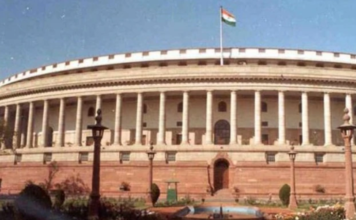The Rajya Sabha on Saturday has unanimously passed Epidemic Diseases Amendment Bill, 2020 by amending the Epidemic Diseases Act, 1897. According to the government, the bill will protect health care workers, their accommodations and workplaces against any violence amid the pandemic. Under this law, anyone attacking the doctors or health care personnel who are fighting against the novel coronavirus, will be punished.
The new legislation will protect the “public and clinical healthcare service providers such as doctors, nurses, paramedical workers and community health workers; any other persons empowered under the act to take measures to prevent the outbreak of the disease or spread thereof; and any persons declared as such by the state government, by notification in the official gazette.”
Union Health Minister Dr Harsh Vardhan claimed the decline in cases of violence against the health care personnel during the introduction of ordinance in April this year. He said, “We have all noticed that there has been a dramatic decline in the incidents of violence against health workers all over the country.”
Mr. Vardhan said, “We find ourselves in an extraordinary situation with the pandemic. There has been a lot of misunderstanding regarding the virus and a lot of stigma and discrimination, especially against doctors, nurses and frontline health workers. There have been cases when medical staff reached home after battling Covid-19 through the day and were not allowed to enter their housing societies. This significantly reduced the morale of healthcare workers.” He added, “We decided to take proactive action and brought in an ordinance on April 22, making grievance or violence towards frontline workers a non-bailable cognizable offence.”
Mr Vardhan, government has “neither the aim nor the intention” to interrupt the autonomy of an institution. He further said that the central government is formulating a National Public Health Act which will cover the several concerns raised by the opposition.
Critisizing the move, MP Derek O’Brien called it unconstitutional and said the government cannot interfere the decisions of states. He said, “Remember states of West Bengal, Punjab, Telangana, Andhra Pradesh, Kerala, Jharkhand, Chhattisgarh and Rajasthan rejected you. Chief Ministers there have been elected to run the states. You cannot cross constitutional bars. There are sinister provisions in the Bill. The states must be authorized to take decisions.”
About the Act:
The act has four sections aiming “the better prevention of the spread of Dangerous Epidemic Diseases.” The act to provide prevention of the outbreak of dangerous diseases like swine flu, cholera and dengue, etc. is being regularly enforced in the country to fight against the coronavirus outbreak. The section 2 of Epidemic Diseases Act, 1897 empowers the state/UT governments to take special measures and formulate regulations, if needed to contain the outbreak.
It reads “When at any time the State Government is satisfied that the State or any part thereof is visited by, or threatened with, an outbreak of any dangerous epidemic disease, the State Government, if thinks that the ordinary provisions of the law for the time being in force are insufficient for the purpose, may take, or require or empower any person to take, such measures and, by public notice, prescribe such temporary regulations to be observed by the public or by any person or class of persons as 9 [it] shall deem necessary to prevent the outbreak of such disease or the spread thereof, and may determine in what manner and by whom any expenses incurred (including compensation if any) shall be defrayed.”
Section 1 of the Act explains its extent of application whereas Section 3 and 4 talk about the penalty for disobeying any regulation and protection to persons acting under act respectively.
Amendments:
On April 22, 2020, the government promulgated the Epidemic Diseases (Amendment) Ordinance, 2020 after seeing the increased violence against the health care personnel fighting the coronavirus outbreak.
Health care personnel includes, (i) public and clinical healthcare providers such as doctors and nurses, (ii) any person empowered under the Act to take measures to prevent the outbreak of the disease, and (iii) other persons designated as such by the state government.
Whereas the Act of violence includes, (i) harassment impacting living or working conditions, (ii) harm, injury, hurt, or danger to life, (iii) obstruction in discharge of his duties, and (iv) loss or damage to the property or documents of the healthcare service personnel.
Property is defined to include a: (i) clinical establishment, (ii) quarantine facility, (iii) mobile medical unit, and (iv) other property in which a healthcare service personnel has direct interest, in relation to the epidemic.
The act will be applicable to public as well as clinical health care personnel that includes doctors, nurses, paramedical workers, community health workers and the people empowered under the act to fight against the outbreak.
After the legal registration of crime, an inspector will investigate the offence within 30days and trial needs to be completed within a year, if not extended by the court.
The new legislation announces the imprisonment from three months to five years and a penalty of Rs. 50,000 to Rs. 2,00,000 to anyone found guilty of such acts of violence against the healthcare personnel.
